War & Conflict Archive
Free Newsletter
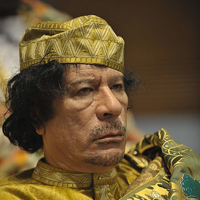
The rapidly spreading chaos in Libya should give the American people pause, and may end up giving the U.S. military another item to add to its endless to-do list. Setting the stage for what might be called the battle for Tripoli, anti-government forces and rebel military units are moving from the country’s apparently “liberated” east to face off against Moammar Gadhafi’s Praetorian Guard of tribal and regime loyalists. The New York Times described “clusters of heavily armed men in mismatched uniforms clutching machine guns,” “dozens of checkpoints operated by . . . plainclothes militiamen,” and “machine-gun toting foreign mercenaries” stalking […]

Will the collapse of Moammar Gadhafi’s regime be the salvation of Russia, Saudi Arabia and Venezuela? Even without a forcible overthrow of the “Brother Leader” and the uncertainty of a subsequent interregnum, a protracted Libyan civil war that damages the country’s energy infrastructure could drive energy prices back to 2008 levels. Joshua Schenyer, surveying the landscape, concluded grimly, “Regardless of what comes next in Libya’s lethal political standoff, the OPEC country’s oil sector is nearly certain to suffer, bringing long-lasting supply disruptions or even permanent damage. None of several potential outcomes is benign for Libya’s oil industry — the lifeblood […]
If the debate about how the U.S. and the international community should respond to the carnage in Libya highlights one thing, it is that we still have not arrived at either a domestic or global consensus about when and why to intervene militarily in the affairs of a sovereign state. I include Iraq in the title of this post for three reasons. First, the pre-emptive nature of the Iraq invasion in many ways served to sidetrack the debate over humanitarian interventions. Second, the outcome of the Iraq War served to chasten the broad middle of the policy debate, if not […]
One of the major points of speculation about the impact of the Egyptian uprising is over how a democratic government in Cairo will affect Egypt’s foreign policy, in particular regarding Israel. A just-released Ifop poll of French opinion on the Afghanistan War (via Jean-Dominique Merchet) highlights a point I’ve been meaning to make: Democracies are not immune to unpopular foreign policy. According to the Ipof poll, 72 percent of French people oppose the country’s involvement in the Afghanistan War. That’s slightly higher than the two-thirds who opposed the war at the time that French President Nicolas Sarkozy decided to deploy […]
This report by the Pentagon Channel, the U.S. Defense Department’s TV news service, on the killing of four Americans by pirates on February 22, includes an interview with U.S. Navy Vice Admiral Mark Fox, commander of U.S. Navy Forces Central Command, who describes the events after U.S. forces boarded the pirated vessel Quest off the coast of East Africa.
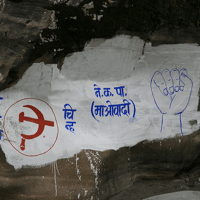
Left-wing radicalism in South Asia is stronger than at any time since the Cold War, with both India and Nepal challenged by Maoist uprisings. Because it impacts one of the world’s emerging powers, the situation in India is perhaps of greater global significance. But the Nepal case is just as instructive, if not more so. For Nepal’s largely impoverished population of 25 million, which lives in a territory the size of Florida, a bloody decade of people’s war has since 2006 given way to “peace.” Yet to call the situation in Nepal peace is appropriate only if one believes that […]
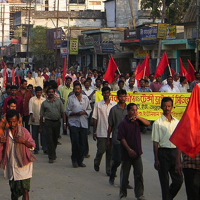
In July 1967, at the height of Mao Zedong’s “Great Proletarian Cultural Revolution,” an editorial appeared in the Chinese Communist Party newspaper the People’s Daily heralding “a peel of spring thunder” sweeping across India. An uprising of tea-plantation workers led by Maoist militants in Naxalbari, a poor and remote district near India’s Darjeeling region, had come to Beijing’s attention. Inspired by the Chinese revolution, the militants imagined that Naxalbari was to be the beginning of a popular revolt that would end with the red flag flying over New Delhi. Such dreams were premature. Within months, the government had brutally suppressed […]
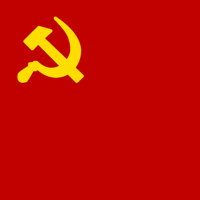
The 2008 and 2010 Latinobarometro Polls, taken in 18 countries of Latin America, underline the fact that, even though the GDP of most Latin American countries has been improving since 2001, there are deep flaws in democratic political systems throughout the region. The relative popular dissatisfaction stems from deep-rooted socioeconomic inequalities as well as distrust and lack of confidence in police forces, legislatures and political parties. There is also a growing popular consciousness of unfulfilled rights, leading to rising demands for their enjoyment. Peruvians are especially disgruntled. Peru’s economy has grown faster than any of the other bigger countries in […]

A deadly clash between Thai and Cambodian troops along the border near the Preah Vihear temple has renewed long-running tension between the two Southeast Asian neighbors. The fresh conflict poses a serious threat to bilateral relations and could be exploited, especially in Thailand, in domestic leadership struggles. The dispute has also revealed the limitations of important organizations like the Association of South East Asian Nations (ASEAN). The recent confrontation claimed the lives of three Thai and five Cambodian soldiers, and according to local NGOs forced more than 25,000 people to flee their homes amid fears of further violence. Unconfirmed reports […]

Events in Egypt have taken center stage in global news coverage, displacing developments in Afghanistan in what amounts to a mixed blessing for the Obama administration. For while critics have taken the White House to task for its approach on Egypt, particularly over its mixed messages and lack of a unified response, they have paid less attention to the recent string of Taliban bombings in Kandahar — and the potential implications for the administration’s war strategy. The attacks killed the province’s deputy governor, Abdul Latif Ashna, and targeted the home of Kandahar’s police chief, Khan Mohammad Mujahid, who was not […]
A spate of car bombs in northern Iraq have killed at least 7 people and wounded some 80 others. This video shows graphic footage of one of the attacks, which happened in the country’s northern city of Kirkuk. Two car bombs were aimed at police patrols while a third device exploded outside a building that houses the Kurdish security forces. No group has so far claimed responsibility.
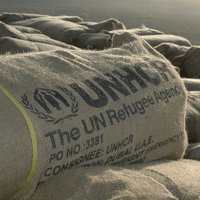
One of the most complex and difficult humanitarian problems confronting the international community today is that of protracted refugee situations. These are refugee situations that have moved beyond the emergency phase, but where solutions in the foreseeable future do not exist. Many of the refugees left behind in these situations have to live under terrible conditions, warehoused in camps or stuck in shanty towns, exposed to dangers, and with restrictions placed upon their rights and freedoms. I first became aware of the significance and dimensions of the contemporary problem of prolonged exile in 2001, after a brief visit to the […]
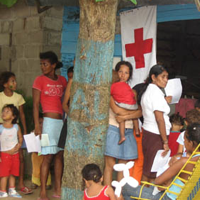
Looking down from the hilltops of Bogotá’s southern rim, a sea of shingled rooftops and cinderblock huts stretches toward the horizon. These ever-expanding slums are home to tens of thousands of internally displaced persons (IDPs), Colombians who have fled their homes elsewhere in the country to escape the country’s long-running armed conflict. Here, Lady Carabali, a mother of five, lives in a damp, ramshackle home made from pieces of wood and scrap metal, with no running water or electricity. She was driven from her small farm on the Pacific coast by paramilitary violence more than a decade ago. Each day, […]
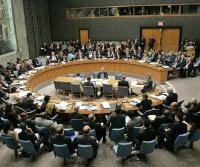
Who cares about the United Nations Security Council? Over the past year, major powers have certainly been taking the council increasingly seriously. U.N. experts who argue that the council’s credibility rests on its appeal to big players in the global system were comforted by Germany, India and South Africa’s successful campaigns for two-year seats on the council last year. But some poor, weak governments have decided to defy it, with a series of African leaders, in particular, showing contempt for the council’s authority. In January 2010, President Idriss Déby of Chad insisted that the U.N. withdraw peacekeepers charged with protecting […]
